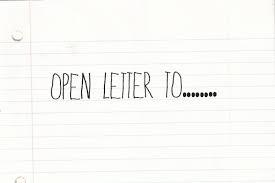Dear Mr. Prime Minister Harper,
Do you know who I am? You should, because you are asking me to unveil myself. So let me tell you who I am.
I am a Canadian. I was born in this beautiful land and I call it home. I’m hidden, but no stranger, active, but not really an activist, often terrified, but not a terrorist, a fan, but not a fanatic. I am just me.
My name is Aysha Luqman-Pandor. I am 30 years old. I live in Pickering, Ont., and I am the administrator for a private school. I’m completing a degree in foundations for teaching as well as classical Arabic. I am the mother of three children — two sons, ages 11 and eight, and a 10-year-old daughter.
I began wearing the niqab when I was 16. I was inspired by a book, Hijab, by Ibrahim Madani, which is about the essence of covering. My parents, though practicing Muslims, never enforced or imposed religion on us. I was brought up with love, support and happiness. My parents migrated to Canada over 40 years ago from India, and are quite in tune with Canadian culture. Hockey, for example, in our household, is a staple like bread and butter.
My decision to wear the veil surprised even my religious, praying parents. They encouraged me to make my own choices, but even they didn’t think I would make this one. I suppose it’s a confidence thing.
I was shy, more reserved, voted most likely to disappear by my classmates. I did lose most of my so-called friends when I began to observe the veil. I did gain a really great one though — my husband of 13 years, who is also my best friend and greatest support.
Every day I am tested in my faith. So, I do not drink, I do not smoke, I don’t use drugs and I have been a faithful wife to my husband. My faith, I believe, was the reason for all this.
I was told once, a while ago, prior to my decision to wear the veil, that how I choose to dress will give the first impression to others of who I am. It was a statement made by my high school teacher, and it held true. After all, clothing has a great impact on how we feel and how we are seen. We dress in ways to reflect our choices, our beliefs, our attitudes and our mentality.
open quote 761b1bI feel it’s belittling of a politician of a high rank to play fashion police. It has me a little furious that you would refer to my religion as a ‘culture’. Also, that you use your platform to put down many intelligent, hardworking and devoted women who follow this religion willingly and observe the niqab happily.
So, if covering myself makes me feel safe, comforted, spiritually elevated, and an equal in the eyes of those who see me, then what are you saying by asking me to take it off?
I’m not here to state a ruling on whether the veil is mandatory in my faith or not. I’m here simply to say it is mandatory for me, and I choose to observe it.
I find it oddly unsettling that your number one issue with the niqab is that it wasn’t expressing a “Canadian” identity.
You never mentioned security, feminist issues or even safety issues in wearing it. Perhaps our foreign affairs, economy and education system would thrive if you put as much energy into those issues as you did in this one. I feel it’s belittling of a politician of a high rank to play fashion police. Furthermore, I feel you stepped out of line when you mentioned it was an act deeply rooted in a culture that is “anti-woman.”
It has me a little furious that you would refer to my religion as a “culture”. Also, that you use your platform to put down many intelligent, hardworking and devoted women who follow this religion willingly and observe the niqab happily.
As Canadian Muslim women, we know we have a choice. We are not being forced and therefore it falls into our constitutional right to observe it. It’s a hypocritical theory to claim you are liberating women by telling them what to wear.
I am fortunate that I was born into this great land. I am free to learn, to practice what I learn and to teach it to others. I have nothing to hide, and when asked to do so for security reasons, I unveil myself to prove it.
So who am I to you, Mr. Harper? You know I am a voter; I know this because you reached out, shook my dad’s hand during the 2011 federal election campaign and said you would be working hard to ensure we were happy with our vote for you.
You know I am a Muslim because I presented myself as one. You know I am a human because you observed me as one.
But do you know who I am?
I am that 16-year-old girl who was shy, but had a lot to say. I am that 16-year-old girl who was facing a horrendous time fitting in and belonging, until one day she took the initiative to determine how she would be seen. My niqab gave me a voice, a place and a hope. It made me who I am.
Today however, I am writing to you as a young woman, and I own my own narrative. So take the time to get to know me, and before you ask me to take it off, perchance ask me why I put it on. Then perhaps, you will know who I really am.
Sincerely,
Aysha Luqman-Pandor
Why I wear the niqab: an open letter to Stephen Harper
Subject: Why I wear the niqab: an open letter to Stephen Harper
From: Aysha Luqman-Pandor
Date:
11
May
2015
Category:
















